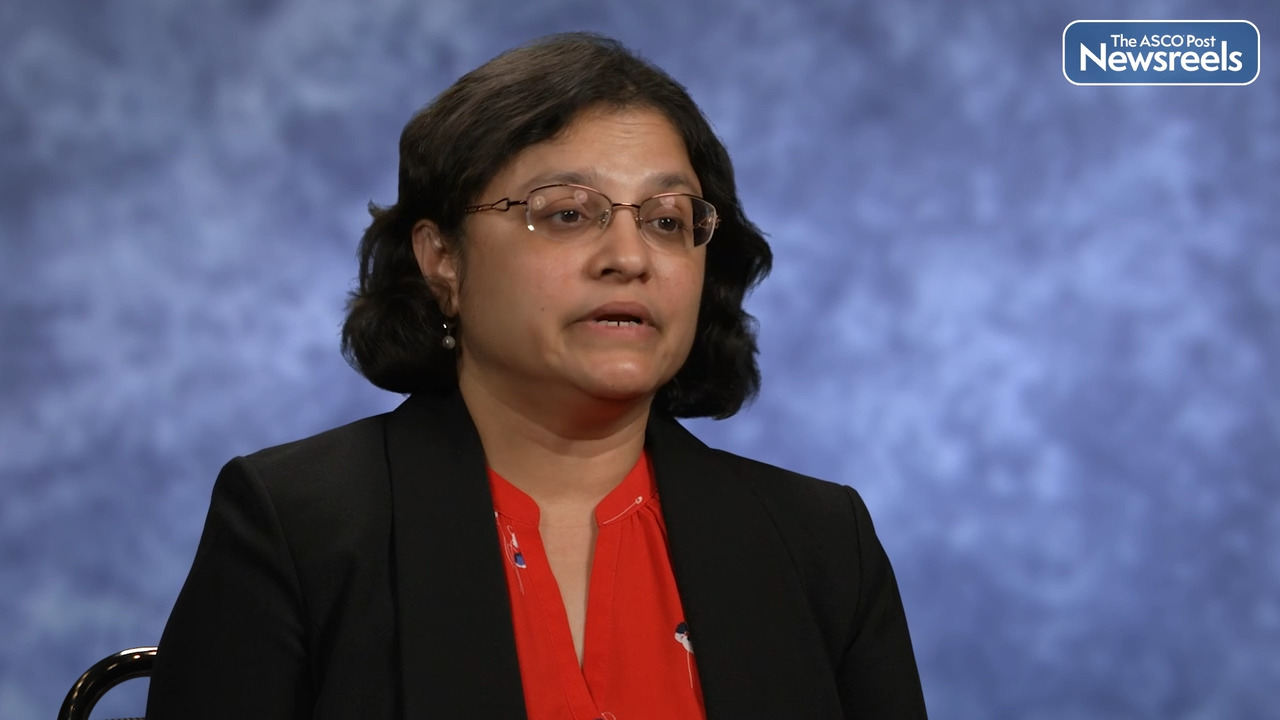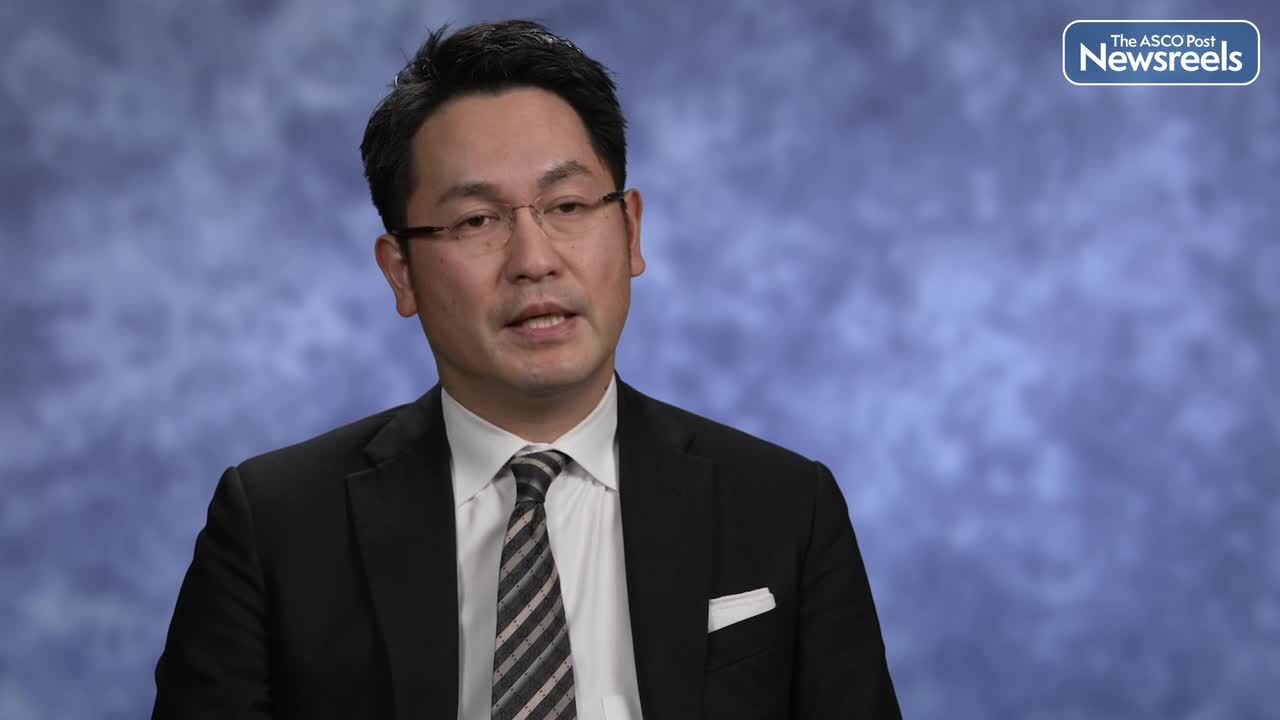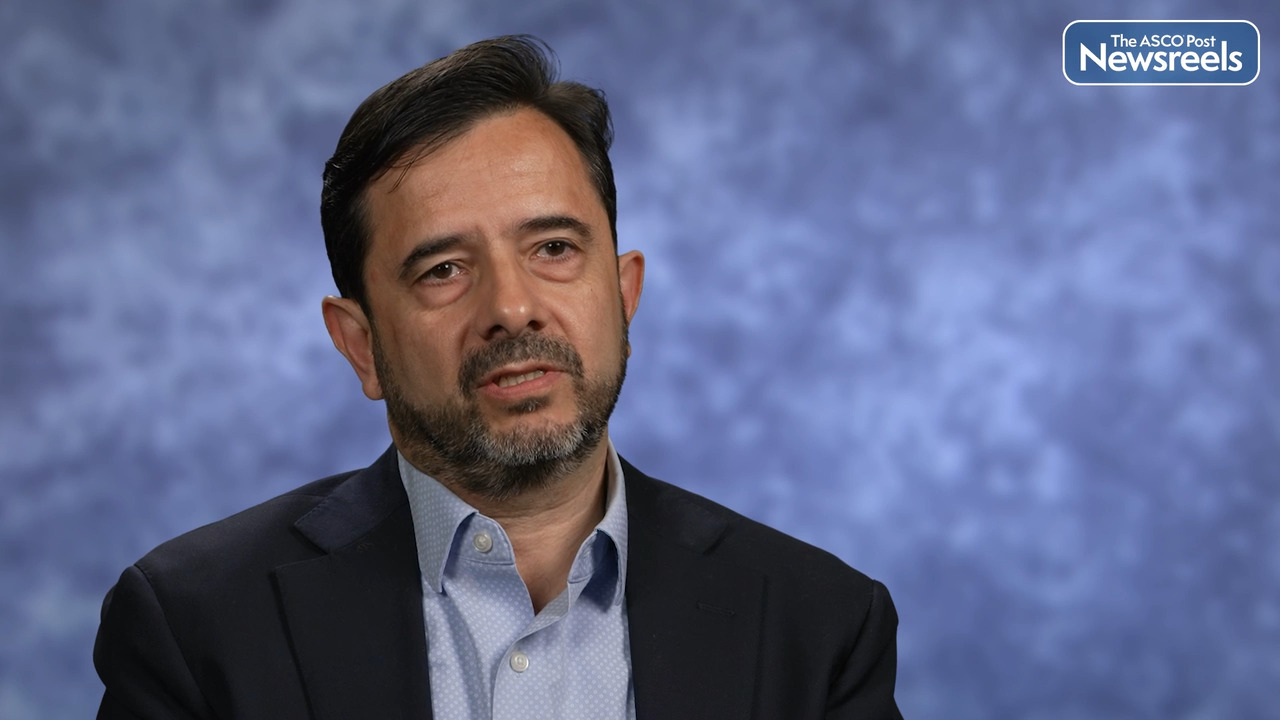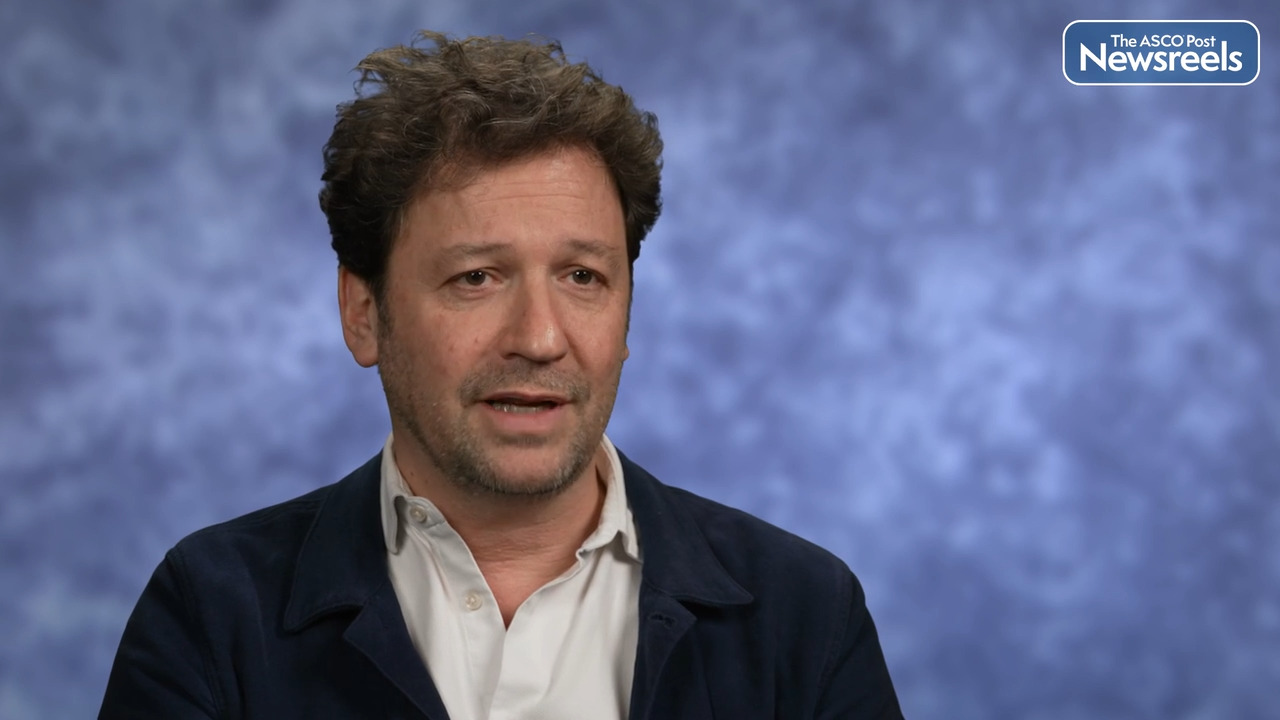Transcript
Disclaimer: This video transcript has not been proofread or edited and may contain errors.
The purpose of the randomized phase three study, HE1, that was run by the Canadian Clinical Trials Group was to evaluate the role of low dose single fraction radiotherapy with regard to improvement in pain.
Patients who were eligible for the study had repain from their metastases in the liver or from their primary liver cancer, and these patients were near the end of their life not suitable for any local, regional, or systemic therapy. Patients tended to have diffuse disease involving the full liver and had to have a pain score of at least four out of 10.
The brief pain index pain tool was used to evaluate pain, and the primary endpoint was a proportion of patients who had an improvement in pain at worst in the past 24 hours when receiving radiotherapy compared to best supportive care alone.
There was a one-to-one randomization, and this study hypothesis was that there would be a very large effect size. So pragmatic, simple study, the intervention of radiation is relatively simple to give with an antiemetic. It can be delivered in any radiation oncology center around the world.
The eligible patient population could not have had prior radiotherapy atrium 90 or cholangitis, but otherwise allowed patients with a wide range of liver function and any burden of disease. The median pain score at baseline was seven out of 10. So these patients had analgesial refractory pain and were some in pain crisis. The randomization was one-to-one best supportive care versus SBRT, and the primary endpoint was at one month. So at one month there was a clinically important and statistically significant improvement in the proportion of patients who reported improved pain with radiotherapy. So 67% of patients who are offered radiotherapy that predominantly was whole liver radiation, had an improvement in their pain by two or more points on a scale of zero to 10, compared to 10% of patients who were offered best supportive care alone.
And in those patients who had best supportive care, they were offered the opportunity to receive palliative radiotherapy at the one-month time point and 33 patients did. They were then followed at three months, and then the study was complete. A sensitivity analysis was done, and all patients who did not complete their one-month patient reported outcome pain scores were assumed to have worse pain, and with that sensitivity analysis, there remained a statistically significant and clinically important improvement in pain in those patients who received radiotherapy. Adverse events were similar, although there were an increase in grade two and three gastrointestinal adverse events with the addition of radiotherapy. They were mostly reversible and transient. And interestingly, a secondary endpoint was three months survival. And in fact, there was a trend for improved three months survival with the addition of this simple radiotherapy with 51% of patients surviving at three months versus 22% of patients who are treated with best supportive care alone.
So overall, this study is quite exciting as this very simple palliative intervention can improve the lives of patients who suffer from pain or discomfort from their primary metastatic liver cancer that is refractory to analgesia. And these patients may not be eligible for other therapies. A secondary endpoint was survival at three months, and in those patients who received palliative low-dose radiation, they were more likely to survive at three months with 51% of patients receiving radiotherapy alive at three months versus 33% of patients who had best supportive cure only. The P value is 0.07. So this is only a trend, but an interesting observation. Hopefully this will be practice changing for patients who have discomfort or pain from their primary or metastatic cancer who are not suitable for standard systemic or local therapies. And they can be offered palliative radiation with a pre-treatment antiemetic to help their quality of life and pain.
And hopefully this opens the door for more studies of the use of palliative radiotherapy for primary metastatic liver cancer. We use radiotherapy routinely to palliative patients with bone meds and lung meds and brain meds, but we have very little data and do not routinely use radiotherapy in the setting of liver metastases or primary liver cancer. And this study shows that there is a benefit to patients. So further clinical trials will hopefully look at the details of how we can continue to improve the lives of these patients and look at other ways to improve patients' quality of life who are suffering from primary metastatic liver cancer.





